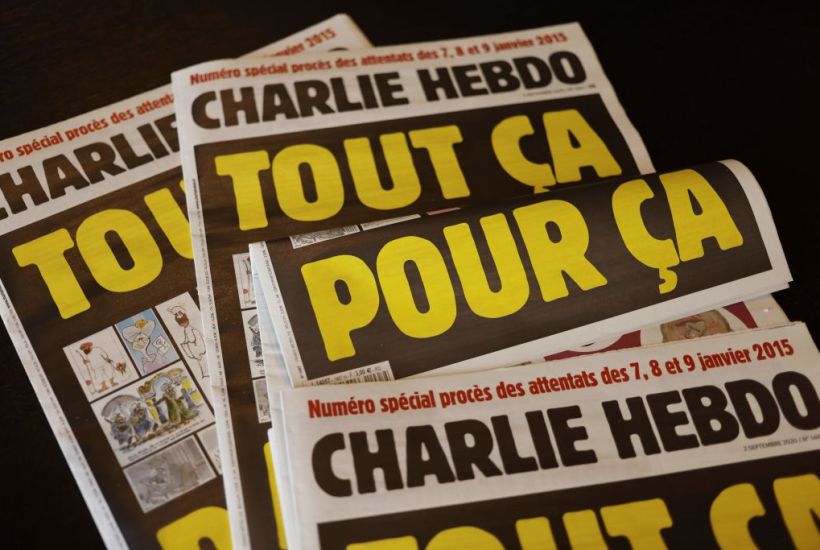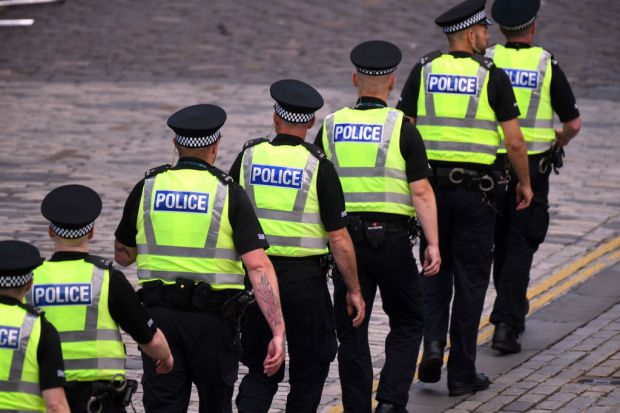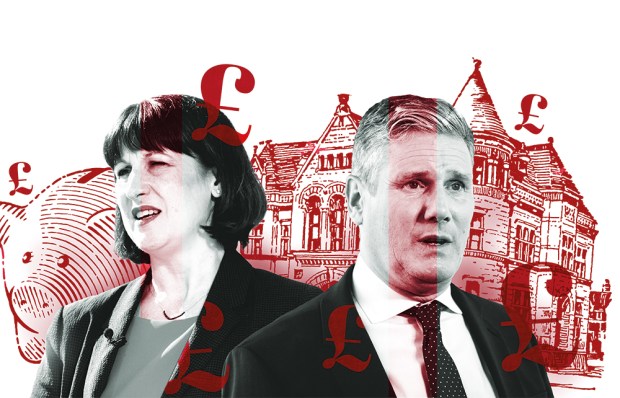Charlie Hebdo’s decision to republish the Mohammed cartoons has the media a-fretting. Al-Jazeera called the illustrations ‘offensive’. The Daily Telegraph brands them ‘notorious’. For the BBC, they are ‘controversial’. I consider gunning down Parisian cartoonists in the middle of an editorial meeting somewhat controversial, but maybe I’m overly sensitive. The satirical magazine reissued the drawings to coincide with the trial of 14 suspects in connection with the 2015 terrorist attacks on Hebdo’s headquarters and a Jewish market. In all, 17 people were killed.
France is putting those accused of involvement in the Charlie Hebdo killings in the dock but in Scotland it could soon be illustrators themselves facing trial. The Hate Crime Bill making its way through the Scottish Parliament will criminalise great tranches of speech and other expressive activity. There are two provisions in particular that seem likely to put anyone producing or publishing Hebdo-esque cartoons at risk of prosecution.
First is the creation of a new offence of ‘stirring up hatred’, which is committed when anyone ‘behaves in a threatening or abusive manner, or communicates threatening or abusive material to another person’ on the basis of ‘religion or, in the case of a social or cultural group, perceived religious affiliation’. Unlike in England and Wales, the Scottish law will not require intent — or even actual hatred to be stirred up. Merely behaving or communicating in a way deemed ‘likely’ to stir up hatred will be enough. Another new speechcrime will be ‘possessing inflammatory material’, which the Bill defines as ‘possession of threatening or abusive material with a view to communicating the material to another person’. Once again, it will not be a defence that the accused didn’t intend to stir up hatred, or stir it up at all.
It is hardly a stretch to suppose that someone out there might consider a satirical or derogatory depiction of the Prophet Mohammed offensive and report it to police. Under the Hate Crime Bill, just three people would have to be convinced that it was ‘likely that hatred will be stirred up’ — a police officer, a procurator fiscal and, in summary proceedings, a sheriff — for the possessor, let alone creator, of that cartoon to be fined or jailed. We would be asking officers of the Scottish criminal justice system to determine matters that philosophers and theologians have struggled with for centuries.
Whether someone creating, distributing or receiving such an illustration would ultimately be convicted is hardly immaterial but it is not the sole metric for the harms of this law. A police visit to one’s home or workplace, even if it results in no further proceedings, would produce a chilling effect in many cases and even an unsuccessful prosecution may well cost an accused his job, reputation or relationships. This is a law that doesn’t have to get you inside a courtroom to wreck your life.
Hard as this might be for some to hear, in a free society, people must be at liberty to say, do and create even the most outrageous, offensive and hateful things. We draw lines, of course, but these are typically in relation to harm, obscenity or public order. We do not, generally speaking, proscribe viewpoints but that will be the effect of the Hate Crime Bill. It is also, arguably, the Bill’s purpose. Belligerent atheists aren’t the intended target; they will just be collateral damage. The Scottish Government is exercised about those who hate particular faith groups rather than those who hate all of them.
It should not be a crime to hate Islam, Judaism, Christianity or any other religious ideology, nor to hate those who adhere to these ideologies for doing so. Freedom of speech and conscience go beyond that, though, to permit criticism, insult, ridicule, and unbridled derogation. To be free to hate religion, you have to be free to tell others to hate it too, otherwise you’re only free inside your head and that’s no freedom at all.
Freedom also means, and this is perhaps hardest of all to hear, the freedom to encourage contempt for the practitioners of a given sect, faith or religion in general. Should you loathe Chabad-Lubavitch Judaism, there’s a fair chance you will loathe Chabad-Lubavitcher Jews for espousing this branch of Chassidism. In urging others to share your loathing for a faith, you must be free to urge loathing for the faithful. Ideas, after all, are an abstraction; it is people who put them into practice.
In an ideal world, people wouldn’t hate any movement within Judaism, nor would fundamentalist Protestants disdain Catholics nor atheists heap scorn on evangelicals. Cartoonists would not provoke Muslims by crudely sketching their Prophet to ridicule or vilify their faith. There is much more to be inspired by in the 114 surahs of the Qur’an than there is to be repelled by. But this is not an ideal world, people do hate ideas and those who practice them, and until now we have been able to tolerate that, provided hatred is not expressed in violence or incitement to violence. The religious are free to proselytise for their faith and damn non-believers as hell-bound heathens; the irreligious, or those who despise a particular faith, are at liberty to spread their own Word and pronounce anathema as they see fit.
The effect of the Hate Crime Bill will be to change the terms on which religion and the religious may be discussed. It will attach a severe legal penalty (up to seven years in prison) for not expressing your contempt in the manner the state would prefer. The flabby language of the draft Bill is such that it is impossible to say with confidence that depicting, distributing or possessing illustrations of Mohammed would not bring a knock on the door, or that skinheads trying to make Muslims feel intimidated would be liable for prosecution but anti-censorship protestors (such as those behind Everybody Draw Mohammed Day) would not.
In the aftermath of the Charlie Hebdo attacks, it was easy to say ‘Je suis Charlie’, because the horror was still raw. It is an altogether different proposition to be Charlie when the authoritarians come with their laws and their insinuations. Defending the rights of bigots, are you? Guess you must be one too, huh?
We have to defend the speech rights of bigots because the law doesn’t just apply to bigots, but to all of us, and sooner or later ‘bigot’ will be defined wider still to include us anyway. Coercive progressivism is on the warpath against free expression and the threat is not just to unpopular minority opinions but to mainstream views that are unpopular with the governing minority (the politicians, the academics, the lawyers and the activists). Such views are being subjected to cultural and institutional censure, as in the Scottish Government’s ‘Dear bigots’ and ‘Dear transphobes’ advertising campaigns, and in time will come to face legal censure, too. The slippery slope is not a logical fallacy; it’s a description of how authoritarians operate.
The new offences created in Part II of the Hate Crime Bill will make it harder, and indeed legally precarious, to revile and ridicule faith and the faithful. Those minded to create, possess or share incendiary depictions of the Prophet Mohammed would have to think long and hard about the potential consequences for their careers, personal lives and even their liberty. A Bill which purports to abolish the old offence of blasphemy risks establishing a new, far broader one under more progressive branding.
Got something to add? Join the discussion and comment below.
Get 10 issues for just $10
Subscribe to The Spectator Australia today for the next 10 magazine issues, plus full online access, for just $10.




















Comments
Don't miss out
Join the conversation with other Spectator Australia readers. Subscribe to leave a comment.
SUBSCRIBEAlready a subscriber? Log in